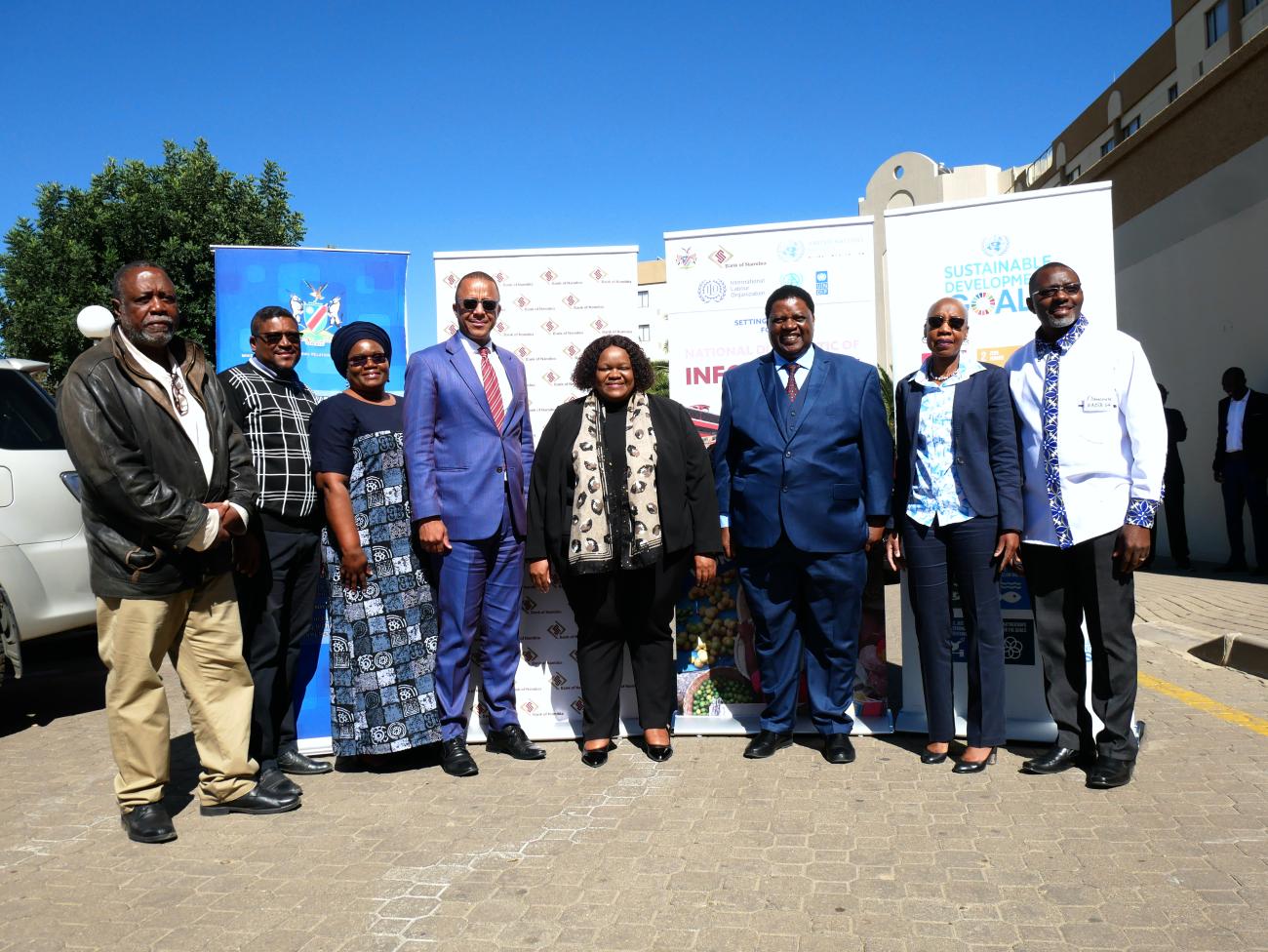Windhoek, Namibia - September 13, 2023
The Bank of Namibia, the Government, and the UN organized a Multi-Stakeholder Workshop on the National Diagnostic of Informality. The event was held at the Safari Hotel & Conference Centre in Windhoek and was attended by a varied group of stakeholders from civil society, trade unions, government, private sector, research and academia, and development partners.
Hon. Lucia Iipumbu, Minister of Industrialisation and Trade, set the tone with a compelling statement. "The presence of four key speakers today testifies to the value and appreciation we attach to Namibia's Informal Economy," she said. Her words were echoed by UN Resident Coordinator, Ms. Hopolang Phororo, who emphasized the importance of international cooperation in uplifting the informal sector.
Iipumbu delved into the policy dimensions surrounding the informal economy, acknowledging challenges like wage disparities and tax evasion perceptions. Mr. Ebson Uanguta, Deputy Governor of the Bank of Namibia, added to this by emphasizing the role of financial institutions. "Banks have a responsibility to be more inclusive, especially when it comes to providing access to credit for small businesses," he noted.
Iipumbu cited global statistics to put the local scenario in perspective. Minister Utoni Nujoma, Minister of Labour, Industrial Relation and Employment Creation, further elaborated on the social protection aspects. "An unguarded informal economy may not offer decent work, thus exacerbating poverty," he cautioned.
The workshop aims to focus on getting a better understanding of the informal economy (extent, diversity, causes, and consequences) and of the context and to build consensus about the situation to agree on priorities and responsibilities to contribute to defining an evidence-based strategy that will complement other ongoing initiatives. "Our draft National Informal Economy, Startups and Entrepreneurship Policy (NIESEP) supports productive activities, not illegal or shadowy businesses," Iipumbu clarified.
As the event unfolded, Iipumbu concluded her remarks by assuring the participants of the government's unwavering commitment. "This initiative aligns directly with the objectives of the Harambee Prosperity Plan II of 2021-2025," she said, leaving no room for doubt about the government's resolve.
The two-day workshop promises to be a milestone in Namibia's journey to formalize its informal economy. It offers a platform for collective discussions and aims to yield fruitful deliberations that could shape the nation's economic narrative for years to come.
For more in-depth coverage on this transformative workshop and the government's future initiatives, stay tuned.







